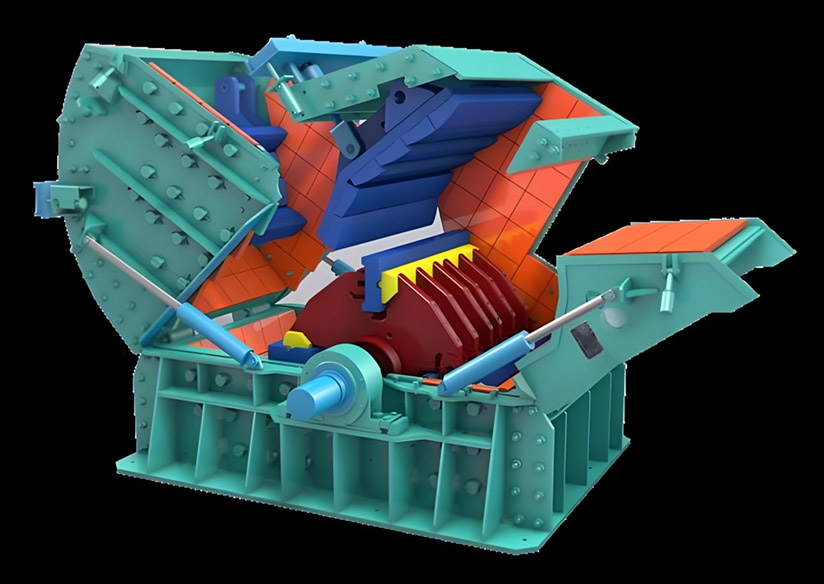In the operation of an impact crusher, the rotor fulfills three core responsibilities: energy transfer, material crushing, and stable operation. The high-speed rotation of the rotor (750-1500 rpm) drives the blow bars to generate powerful impact force, instantly crushing hard rocks like granite and basalt. It also provides rebound kinetic energy for secondary crushing, directly determining over 30% of the equipment's processing efficiency and 25% of its service life.
Whether processing sand and gravel for hydropower projects or recycling construction waste, choosing the right rotor can increase production line capacity by 45% and reduce downtime by 62%, becoming the key to reducing cost per ton.
Three mainstream rotors precisely matched to your operating requirements.
1. Integral Cast Steel Rotor: The "Durability King" for Heavy-Duty Crushing
Core Advantages: Made of integral ZG35CrMo steel, this rotor eliminates weld seam hazards and boasts an impact strength of 35J/cm². It can withstand direct impact from 500mm x 500mm hard rock, and its failure rate during continuous operation is 62% lower than welded rotors.
Suitable Applications: Medium- to large-scale production lines with a processing capacity of 100t/h or more (such as granite and basalt crushing). A hydropower station project saw annual maintenance costs reduced by 40% and a service life extended to over 8,000 hours.
2. Welded Rotor: The "Cost-Effective Choice" for Light-Duty Operations
Core Advantages: Welded from Q345B steel plates, this rotor is 20%-30% lighter than a cast steel rotor of the same specification, with a manufacturing cost of only 40%-60% of that of an integral rotor. It's easy to install and suitable for quick commissioning of small and medium-sized production lines. Suitable for crushing soft rock (such as limestone and construction waste) with a processing capacity of less than 50t/h. A building materials plant uses this rotor to process concrete blocks, keeping the cost per ton to less than 8 yuan and shortening the return on investment to 6 months.
3. Modular Rotor: A Flexible Tool for Customized Needs
Core Advantages: Modular design reduces the cost of replacing individual modules by 50%. It can be adapted to various blow bars, including long and T-shaped, to meet the complex needs of alternating limestone and concrete crushing.
Suitable for customized production lines for mixed crushing of multiple materials. After using this rotor, a recycling company reduced downtime during material switching from 4 hours to 1 hour, increasing annual production capacity by 27%.

The rotor is the "power heart" of the impact crusher, and its performance directly affects the equipment's service life. Zhili New Materials Company has extensive experience in the design and manufacturing of crusher rotors. Manufacturers with inquiries can contact us directly and we will provide comprehensive, high-quality service.